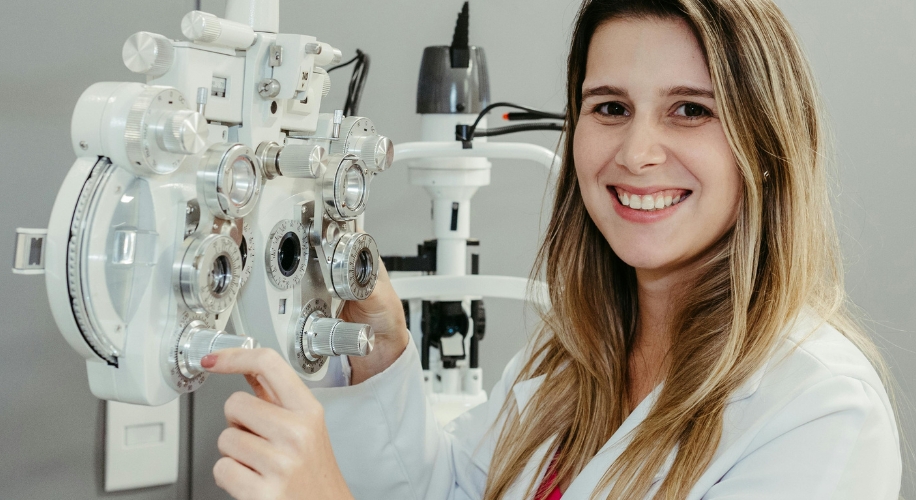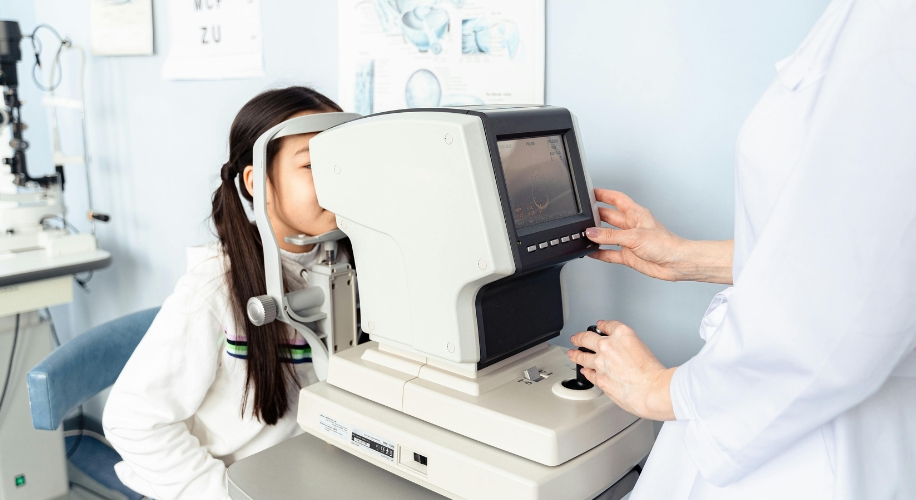The Importance of Routine Eye Exams
Regular eye exams are not just about getting a new prescription for glasses or contact lenses; they are crucial for maintaining overall eye health. Many eye conditions and diseases can develop without noticeable symptoms, making comprehensive eye exams essential for early detection and treatment.

Photo by Jonathan Borba
Monitoring Vision Changes
Even if you think your vision is stable, it can change over time due to factors like aging or underlying health conditions. Comprehensive eye exams include tests to evaluate your visual acuity and assess any changes in your prescription. Updating your glasses or contact lens prescription ensures that you maintain clear and comfortable vision for daily activities.
Assessment of Overall Health
Your eyes can provide valuable insights into your overall health. During an eye exam, your eye care professional may detect signs of systemic conditions such as high blood pressure, diabetes, and even certain cancers. This is because the eyes’ blood vessels and nerves can reflect changes happening elsewhere in the body. Early detection through an eye exam can lead to timely referrals to other healthcare providers for further evaluation and management.
Early Detection of Eye Diseases
One of the most important reasons for regular eye exams is the early detection of eye diseases such as glaucoma, macular degeneration, diabetic retinopathy, and cataracts. These conditions often develop gradually and may not cause noticeable symptoms until they reach advanced stages. During an eye exam, your optometrist or ophthalmologist can detect signs of these diseases early on, allowing for prompt treatment and management to prevent vision loss.
Photo by Antoni Shkraba
Children’s Eye Health
Regular eye exams are especially important for children to ensure normal vision development. Undetected vision problems can affect learning and development. Pediatric eye exams can detect refractive errors, lazy eye (amblyopia), strabismus (misalignment of the eyes), and other conditions that may require early intervention to prevent long-term vision issues.
Prescription Updates and Lens Options
Regular eye exams are necessary to update your prescription if you wear glasses or contact lenses. Your eye care professional can also discuss lens options that suit your lifestyle, whether you need lenses for digital screen use, outdoor activities, or sports. Advanced lens technologies can provide additional benefits such as UV protection, blue light filtering, and improved clarity.

Routine eye exams are essential for maintaining good eye health, detecting eye diseases early, updating prescriptions, and ensuring overall well-being. Don’t wait until you notice vision problems—schedule regular visits with your eye care professional to safeguard your vision and health for years to come.





 Canada
Canada